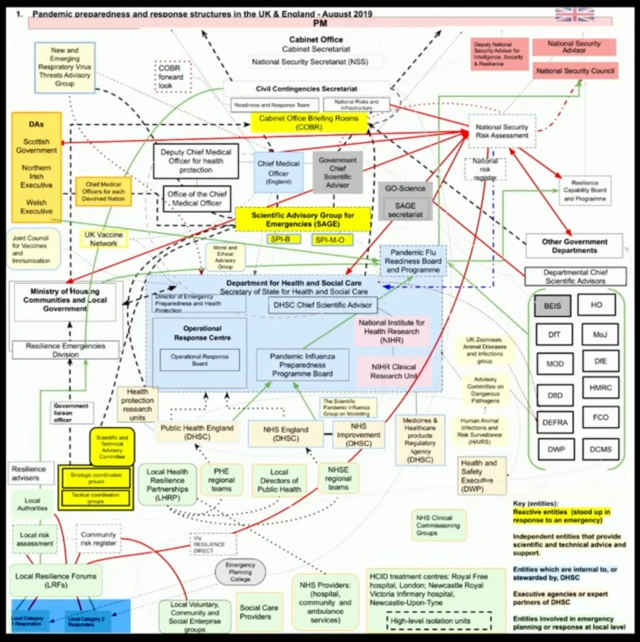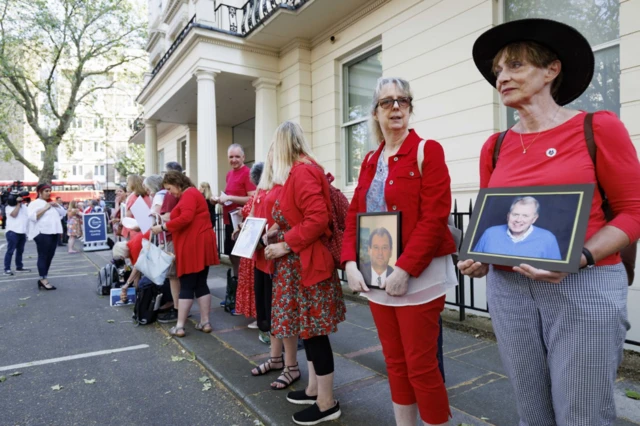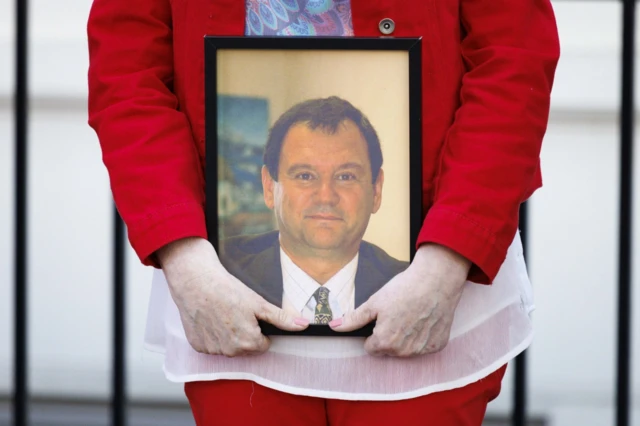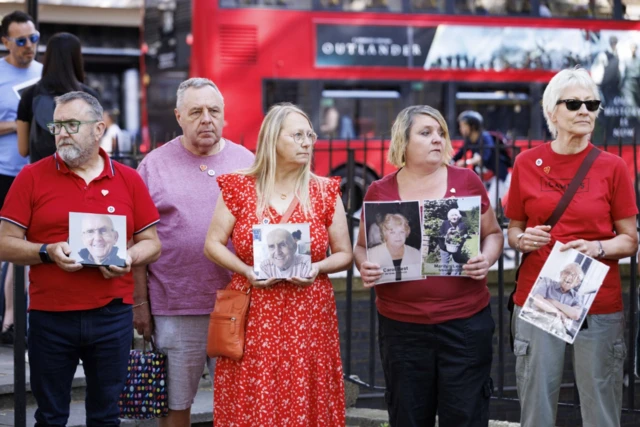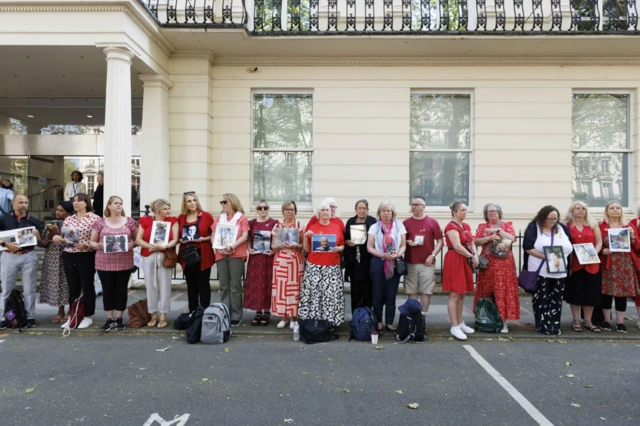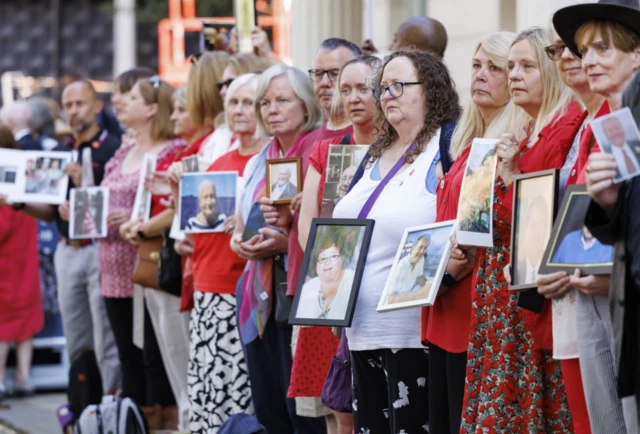Poor planning led to slow reaction - family lawyerpublished at 12:46 BST 13 June 2023
Weatherby continues his opening statement saying families expect the evidence will show a lack of responsibility in government for civil emergency preparedness, with little or no ministerial leadership.
He says they also expect the evidence will confirm "a chaos of committees" leading to poor planning and a reactive approach, rather than being proactive in fighting the virus.
"We anticipate a consequence of this was a slow reaction," he says.
"Time is of essence and lost time is measured in lost lives."


